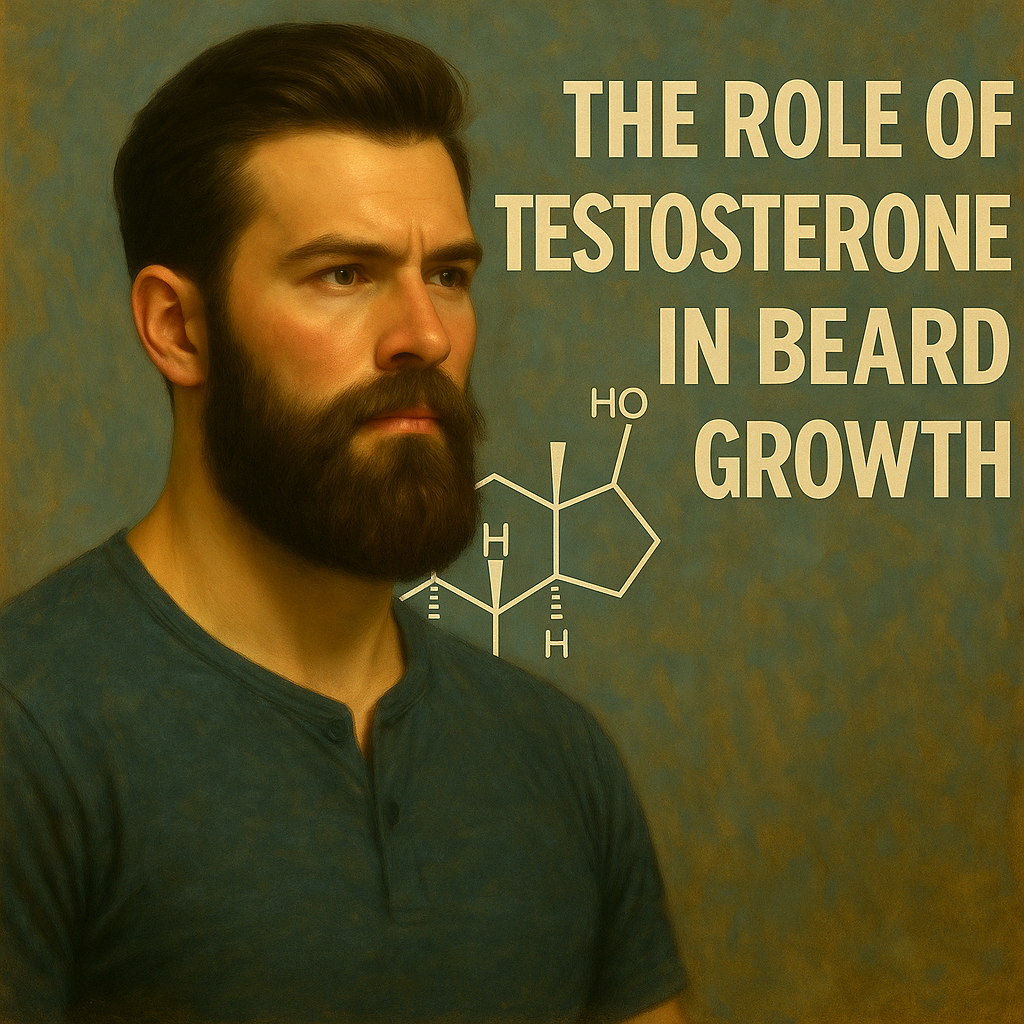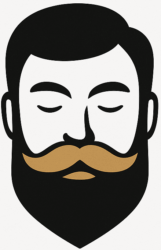
When it comes to beard growth, testosterone is often seen as the magic word. But how much does it really matter? The truth is, testosterone plays a vital role — but it’s only part of the story. Beard growth depends not only on hormone levels but also on genetics, lifestyle, and how your body responds to hormones.
Understanding How Testosterone Affects Beard Growth
Testosterone is a male sex hormone that influences muscle development, voice depth, and hair growth. However, beard growth is more directly affected by a byproduct of testosterone known as dihydrotestosterone (DHT).
DHT binds to receptors in hair follicles, stimulating them to produce thicker, darker facial hair. The more responsive your follicles are to DHT, the fuller your beard will grow.
Key point: It’s not just about how much testosterone you have — it’s about how efficiently your body uses it.
Genetics: The Missing Piece
You could have high testosterone levels and still struggle to grow a full beard. That’s because genetics determine how sensitive your follicles are to DHT.
If your family has a history of thick beards, your chances are high. If not, you can still maximize your growth by improving your lifestyle and grooming habits.
Signs of Healthy Testosterone Levels
Healthy testosterone levels contribute to more than just beard growth — they influence overall vitality.
Common signs of balanced testosterone include:
- Steady energy levels and mood
- Healthy libido
- Consistent muscle tone
- Steady facial and body hair growth
If your beard growth suddenly slows or you experience fatigue, it could be worth checking your hormone levels with a medical professional.
Natural Ways to Support Testosterone and Beard Growth
1. Exercise Regularly
Resistance training and high-intensity interval workouts naturally boost testosterone. Even 30 minutes a day can make a noticeable difference over time.
2. Prioritize Sleep
Sleep is when testosterone production peaks. Aim for 7–9 hours per night to support both hormone balance and healthy beard growth.
3. Eat a Balanced Diet
A diet rich in protein, zinc, magnesium, and healthy fats supports testosterone levels. Include eggs, lean meats, nuts, avocados, and leafy greens in your meals.
4. Reduce Stress
Chronic stress increases cortisol, which can suppress testosterone. Activities like meditation, walking, or journaling can help you maintain balance.
5. Avoid Over-Grooming
Excessive trimming or harsh chemicals can weaken your beard over time. Let it grow naturally and use beard oils to maintain healthy skin underneath.
Myths About Testosterone and Beards
- Myth: More testosterone always equals a thicker beard.
Truth: Follicle sensitivity matters more than total testosterone levels. - Myth: Shaving makes your beard grow faster.
Truth: Shaving doesn’t affect hormone levels or follicle activity. - Myth: Only young men can grow full beards.
Truth: Many men see thicker growth as they age into their late 20s and 30s.
Key Takeaways
- Testosterone and DHT are crucial for beard development.
- Genetics and hormone sensitivity determine how thick your beard becomes.
- Lifestyle habits like sleep, nutrition, and exercise naturally support testosterone and beard health.
